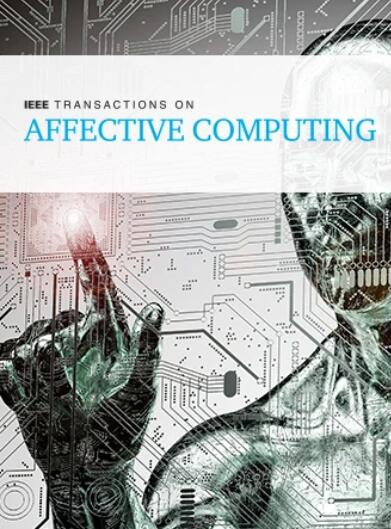基于脑电图的抑郁识别的不确定性感知动态对抗适应网络
IF 9.8
2区 计算机科学
Q1 COMPUTER SCIENCE, ARTIFICIAL INTELLIGENCE
引用次数: 0
摘要
抑郁症是一种常见的精神障碍,其特征是情绪低落、失去兴趣、自卑和焦虑。由于缺乏客观指标和精神科医生及患者的主观性,抑郁症的临床诊断常常面临挑战。近年来,随着人工智能技术的飞速发展,基于生理信号的抑郁症自动诊断方法应运而生。这些方法有助于提高诊断的准确性和客观性。其中一种使用的生理信号是脑电图(EEG),这是一种容易获得的、无创的、低成本的电信号,记录了大脑皮层神经元的活动。脑电图通常用于观察大脑状态和诊断精神疾病。然而,由于脑电图信号的高度个体变异性,现有的方法往往不能充分解决去除个体变异性的问题。此外,在疾病识别中实现高模型可靠性至关重要,但现有方法通常缺乏对识别结果的不确定性估计。为了应对这些挑战,本研究引入了一种不确定性感知动态对抗适应网络(UA-DAAN)。该网络结合了对抗性学习概念,以解决脑电图数据中显著的个体差异。它利用贝叶斯神经网络(BNN)中动态域对抗过程的不确定性感知优化,增强了源域和目标域之间类相关特征的可转移性,提高了整体模型的鲁棒性、准确性和可靠性。实验结果有力地证明了该模型在抑郁症识别中的有效性。本文章由计算机程序翻译,如有差异,请以英文原文为准。
UA-DAAN: An Uncertainty-Aware Dynamic Adversarial Adaptation Network for EEG-Based Depression Recognition
Depression is a common mental disorder characterized by symptoms such as a depressed mood, loss of interest, low self-esteem, and anxiety. Clinical diagnosis of depression often faces challenges due to the lack of objective indicators and the subjectivity of psychiatrists and patients. In recent years, with the rapid advancement of artificial intelligence technology, automatic depression diagnosis methods based on physiological signals have emerged. These methods have helped enhance the accuracy and objectivity of diagnosis. One such physiological signal used is the electroencephalogram (EEG), which is an easily obtainable, noninvasive, and cost-effective electrical signal recording the activity of neurons in the cerebral cortex. EEG is commonly used to observe brain states and diagnose mental illnesses. However, due to the high individual variability of EEG signals, existing methods often do not adequately address the issue of removing individual variability. Additionally, achieving high model reliability in disease recognition is crucial, but existing methods typically lack uncertainty estimation of recognition results. To tackle these challenges, this study introduces an uncertainty-aware dynamic adversarial adaptation network (UA-DAAN). This network incorporates adversarial learning concepts to address the significant individual variability in EEG data. It utilizes uncertainty-aware optimization of the dynamic domain adversarial process in a Bayesian neural network (BNN) to enhance the transferability of class-related features between source and target domains, improving the overall model's robustness, accuracy, and reliability. The experimental results strongly prove the effectiveness of this model in depression recognition.
求助全文
通过发布文献求助,成功后即可免费获取论文全文。
去求助
来源期刊

IEEE Transactions on Affective Computing
COMPUTER SCIENCE, ARTIFICIAL INTELLIGENCE-COMPUTER SCIENCE, CYBERNETICS
CiteScore
15.00
自引率
6.20%
发文量
174
期刊介绍:
The IEEE Transactions on Affective Computing is an international and interdisciplinary journal. Its primary goal is to share research findings on the development of systems capable of recognizing, interpreting, and simulating human emotions and related affective phenomena. The journal publishes original research on the underlying principles and theories that explain how and why affective factors shape human-technology interactions. It also focuses on how techniques for sensing and simulating affect can enhance our understanding of human emotions and processes. Additionally, the journal explores the design, implementation, and evaluation of systems that prioritize the consideration of affect in their usability. We also welcome surveys of existing work that provide new perspectives on the historical and future directions of this field.
 求助内容:
求助内容: 应助结果提醒方式:
应助结果提醒方式:


